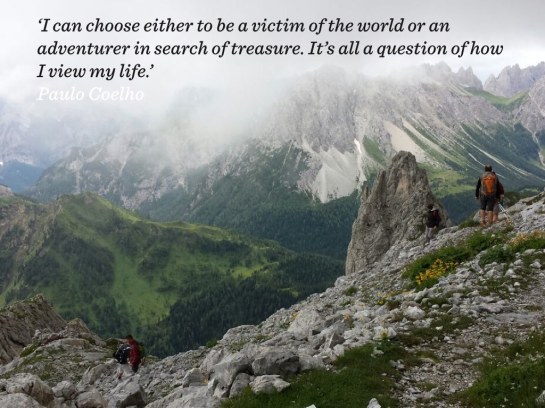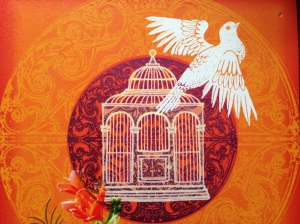Whenever we’re focusing on creating something new, setting intentions or being in the process of moving forward it’s always important to notice what is holding us back from what we’re capable of. What we need to let go of, what is beyond our control, and being able to navigate carefully – to not foster resentment, jealousy or ill energy towards the past. It may be a belief we need to shift about our identity, how you’ve been treated, or how others have wronged us – they all require a process of shedding. This post may be a little more ‘spiritual’ than others – but we’re focusing on energy when we want to let go, so it’s necessary to go a little deeper – but back it up with some science and studies too.
Taking on a new challenge can be scary, and we all want to avoid mistakes and pain, especially if we’ve been hurt. Rather than seeing the past as crippling, take on an attitude of learning and focus on ‘getting better’. Give yourself permission to screw up and not be perfect all the time – we’re always in a process – always.
As a Coach, I do struggle with goals, in a traditional sense – I get how they work and for a lot of people they are motivating and help them achieve, but for me it’s alignment to your values and intent that makes them powerful and effective – which is the trick some people miss. I recently found this great article at Fulfillment Daily on ‘get better’ goals rather than ‘be good’ goals, which dissects setting yourself up for success well. They note from their study, your ability to cope under pressure and handle stressful situations as a significant indicator of future success. Capable people turn obstacles into a source of growth and opportunity. Mentally strong people avoid dwelling on the past, resenting the success of others and feeling sorry for themselves. Here is another great article published in Forbes magazine, on what successful people avoid. The majority of these points come back to your ability to let go and process experiences as lessons.
Remember, ‘that which you give energy to, breeds’. A version of this line was said to me many years ago, and it rings true. If you’re offering a suffocating experience or person your energy, you’re fueling its power – and its authority to constrict your current (and future) beliefs. Focus on what ‘capacity you have’ to let it go now, not its ‘potential to be released’ some day soon (that will never happen!)
The ‘serenity prayer’ is still hanging in my parents bathroom, I’ve stared at it from age seven or eight, when I was able to read it – and probably only understood its message by the time I was a in my 20s. Letting go of what you cannot change in others is liberating. And having wisdom to know when you are in the process of accepting this, is invaluable.
Don’t enter a power struggle with your past. Let it go. Create space for the new.
See people and circumstances for what they gave you; insight, opportunity for growth, freedom – not for how they let you down or disappointed you. This may take time to process and recognise but eventually if you motion it, you’ll be able to let it go. Be able to forgive, and if you’re struggling with this, see blogs on what I’ve written about forgiveness here.
Often we think something needs to be resolved in order for us to let it go. This is not the case. Letting go, or forgiveness is an intention you make – it is an energy you hold onto, not a thing. So a decision to release it can restore vitality, possibility and integrity to your life – and space for the new.
I’m going to leave you with the words of Gabrielle Bernstein who suggests, ‘your journey of personal development is all part of a divine plan. Our deepest struggles are the catalysts for our greatest change. The moment we embark on a spiritual journey, something radical awakens in us: a deep desire to spread the love. Whether you realise it or not, when you begin to unearth the light within yourself, you’ll soon want to carry the message. Your only purpose is to be the light.’
Experiment a little…
A couple of tools for you:
Just focusing on light helps to you release and shift. Use your breath, this is the source of life, slow its pace as much as you can without strain. Let the new breath in be cleansing, healing and clearing space. Close your eyes and imagine white light entering your body, deep down into your chest and heart area, then into the diaphragm and cleansing your organs. Let the exhale be equal in length, but see it carrying away toxins, unwanted energy and emotions. See the darkness leaving your body – anything that you want to be rid of. Ensure you’re breathing correctly, with an inhale expand your chest and belly, on the exhale your body falls back towards the spine. Let each new breath spread the light all around your body. Any time you get distracted with thoughts just bring your attention back to your breath and let the thoughts pass by like clouds in the sky, don’t entertain them. Try to do this for just three minutes once a day, and increase each day by one minute – until you can get to 20-30 minutes in total. See what a difference this makes when you truly let the unwanted energy release.
And to take it a step further, and the process deeper, here is a set of questions you can use to focus on a person or situation you resent and want to release. You can repeat this many times over, or for several people and circumstances, until you feel a sense of having let go. This exercise is great for processing all types of relationships.
Who/ what am I carrying a resentment toward?
Write out a list. Select one at a time, and go through each of these questions for each person/ situation.
What do I resent this person for?
What can I be responsible for in this situation?
In what ways can this experience help me become a more mature person?
What lessons did I learn?
What good can come of this situation?
What have I been unwilling to accept in this situation?
What can I let go of so the situation is complete?
© adapted from work by Katherine Woodward Thomas.







